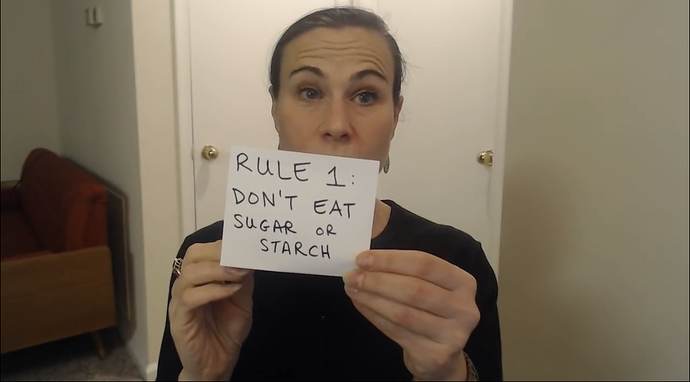Hello, I have a couple questions regarding the foundation of ketosis that seem simple but have come up in family debates. I have read numerous books and listened to probably hundreds of hours of podcasts and what I find is that I have a large picture with many big points but I’m missing the finer details. Part of the reason I am asking these questions is for conversations I’ve had with skeptics about high fat diets. Even though I know in many ways keto way of life is right, I have a hard time debating with non keto people.
Situation 1: I was speaking with a family member who follows a dietary program with supplements and carb cycling (her program stopped working and she is now low carb but says it’s not keto at all, so much to say on that lol), but she said anytime you burn fat you make ketones, and further concluded that the keto diet is unnecessary with high fats because you could be in ketosis without the high fat diet (I tested her blood and she has ketones with low fat diet; I know there are many reasons as to why this could be) (edit: she says she needs her complex carbohydrates and that a diet should be well balanced)
So obviously there is so much to say in rebuddle to this, but what I am missing is the simple point: any diet that induces ketosis is a ketogenic diet right? This is said in the intro to every 2 keto dudes podcast. From her low fat standpoint, a ketogenic diet can still be low fat. And perhaps her body is eating her own fat, or any number of scenarios, but is there anything straightforward and matter of fact I could bring up to her? When I start to offer a bunch of “it could be this… or what if it’s this…” it just seems to convince her more that she’s right; if I had the basic understanding of actual ketosis I’d have a stronger case is my point.
I do have some other foundational questions that I will go into depth in another post later but if anyone has some general insight or resources I would appreciate it. Like, what happens to glycogen stores long term after being ketogenic? I’ve heard they get replenished after some time being ketogenic. How are they used in ketosis and does the liver eventually replenish enough to have the same amount of glycogen as when it was sugar burning? Does your body use it as immediate fuel like when it was sugar burning or what does it do with the replenished glycogen? What happens to electrolytes long term keto, do we still shed them? And what did our ancestors or hunters and gatherers do about electrolytes? If we do better without access to food (fasting) like more clarity, higher human growth hormone, more energy and adrenaline, then why doesn’t our body help us with electrolyte scarcity similar to food scarcity?
Another question is about dietary fat vs body fat. Body fat is easily absorbed by the cells in the body without having to pass through the liver; do these readily convert to ketones? Ketones are produced by the liver though, so would it be fair to say ketones are from body fat not dietary fat? Even though dietary fat could become body fat. I would love a book, video or podcast that explains these processes and would appreciate any insight or references!
Thank you for reading the rant and for your time!


